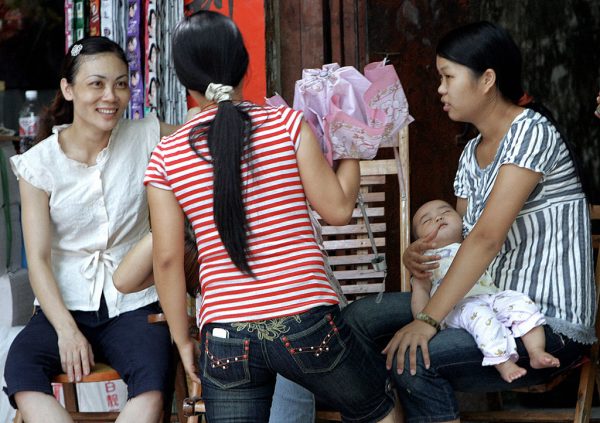Months after the Chinese government announced plans for the restriction of non-medically necessary abortions, authorities have begun taking steps to discourage Chinese women from aborting their babies, even if they are unmarried or underage.
A Jan. 29 document posted on China’s Family Planning Association website calls for branches of the organization nationwide to “begin a targeted campaign relating to abortion, in order to reduce the number of unplanned pregnancies and abortions among young people,” as translated by Radio Free Asia.
For 35 years starting in the early 1980s, the family planning organizations were infamously responsible for implementing the communist regime’s barbaric one-child policy, which prevented the births of or led to the abortion, abandonment, or outright murder of hundreds of millions of children.
Beijing has made an about-face in the last several years as official statistics show almost-zero population growth and a total fertility rate of 1.3 children per woman — well below the 2.1 needed to prevent demographic decline.
In 2016, the regime under current Chinese leader Xi Jinping allowed couples two children each, and further expanded the policy to three children last year, with further government discussion of altogether dropping penalties for “excess births.”
‘Respecting the social value of childbirth’
Success
You are now signed up for our newsletter
Success
Check your email to complete sign up
The family planning officials are also to launch a campaign geared towards “respecting the social value of childbirth, advocating age-appropriate marriage and childbearing, as well as optimal child-bearing and raising.”
Social media was described in the government directive as an effective means to “strengthen guidance of young people’s views on marriage, love and family, and reshape parenting culture to embrace multi-child families.”
“The new marriage and childbirth culture must be incorporated into village regulations, and content that is inconsistent with this must be revised,” it said.
In China, poor social welfare, extremely cutthroat social and economic conditions, and the anti-natalist culture created by the Chinese Communist Party (CCP) itself in implementing the one-child policy have led to severely diminished interest among young people in having children or even starting families.
RELATED:
- China’s Marriage Rates Plummet for Seventh Year in a Row as Divorce Rates Peak; Younger Generations Balk at Marriage
- Marriage License Applications Fall to 13-Year Low in China
Creating a ‘fertility-friendly environment’
The CCP has long opposed traditional Chinese social values, mostly infamously with its decade-long Cultural Revolution that repudiated the “four olds” of ancient Chinese civilization. The Party viewed women as being the same as men, pushing them to enter the workforce on a mass scale and to be fierce and unrelenting.
In contemporary society, the concepts of overachieving “strong women” and unmarriageable “leftover women” (whether due to personal preference or impossibly high standards) have become common tropes.
In now pushing for more births, the Party is likely to again go overboard, observers warn.

Family planning propaganda, according to the Chinese government directive, should “promote the new fertility policy, the new concept of marriage and childbirth … to create a fertility-friendly environment.”
This, a Chinese journalist speaking to RFA under the pseudonym Zhong Tao said, implies that “unmarried pregnancy and even teenage pregnancy will become the norm.”
“This will lead to a rise in single-parent families.”
Some observers have expressed concern that women can and will be seen by the CCP as “reproductive machines.”
RELATED:
“The changes in family planning policy we have seen during the last 10 years have little to do with the reproductive health of the nation, and everything to do with serving government population goals,” Lu Jun, an activist with a non-profit health center, told RFA.
“When they wanted to control the population, they pushed abortion and imposed forced abortions,” he said. “Now they want to boost the so-called national fertility rate, they want to stop people having abortions.”
It’s likely that the state will use the same coercive and sometimes violent measures to force people to have more children.
Beijing wouldn’t be the first country to enforce such measures. In the 1970s and 1980s, the Romanian communist regime banned abortion, resulting in thousands of unwanted babies. Many of them ended up in state orphanages with inadequate care, suffering abuse and neglect.
“There will definitely be a lot of arbitrary implementation in governments at all levels, and across the country, including abuses of power,” Lu said. “There will be targets and quotas set for abortions prevented.”















